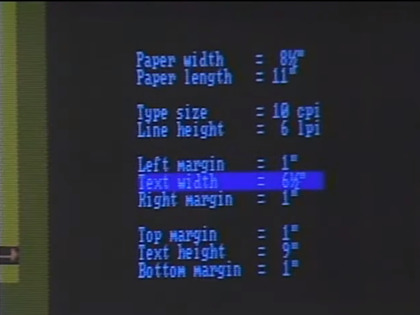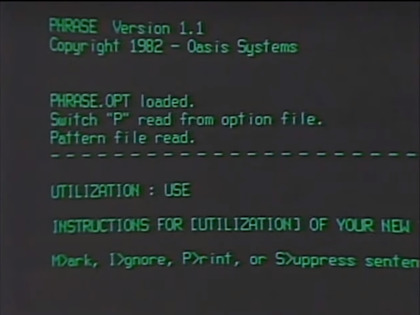 A look back: early word processors
A look back: early word processors
These programs sported features that were new at the time, but common today.
Personal computers have provided some form of word processing almost since the beginning. The ability to write a document and see it represented on screen in the same way that it will be printed on paper was a giant step forward in desktop computing.
The personal computer revolution started in the late 1970s with the introduction of the Commodore PET (1977), TRS-80 (1977), and Apple II (1977). But it was the IBM PC (1981) that marked an explosion in desktop computing, aided by a combination of IBM's name recognition, price-to-performance, and relative ease in developing and distributing software for the platform.
One popular software category was the word processor. Useful in the office and at home, the word processor gave users the tools necessary to create professional documentation.
Computer Chronicles on early word processing
Starting around that time, PBS broadcast a weekly, half-hour television program called Computer Chronicles that highlighted the state of computing and technology. The program was sponsored by Micro Focus, a developer of business software such as Micro Focus COBOL, and co-hosted by Gary Kildall, also known for developing the CP/M operating system and as founder and CEO of Digital Research.
In the early 1980s, Computer Chronicles reviewed then-current word processors. The episode provided a discussion of word processors available for the IBM PC, and reviewed several popular and emerging word processors including Word Vision and Word Plus. Warren Kuhl from AT&T Western Electric also introduced the Writer's Workbench set of tools on Unix.
These programs sported features that were new at the time, but common today. For example, Word Vision highlighted the ability to adjust page margins and dimensions using arrow keys:

Word Plus included a new utility to identify grammar errors and other issues in technical writing:

The episode is a fascinating time capsule of word processing and technical writing tools of the era. Today, these features are common in every word processor - but at the time, these were standout features.
